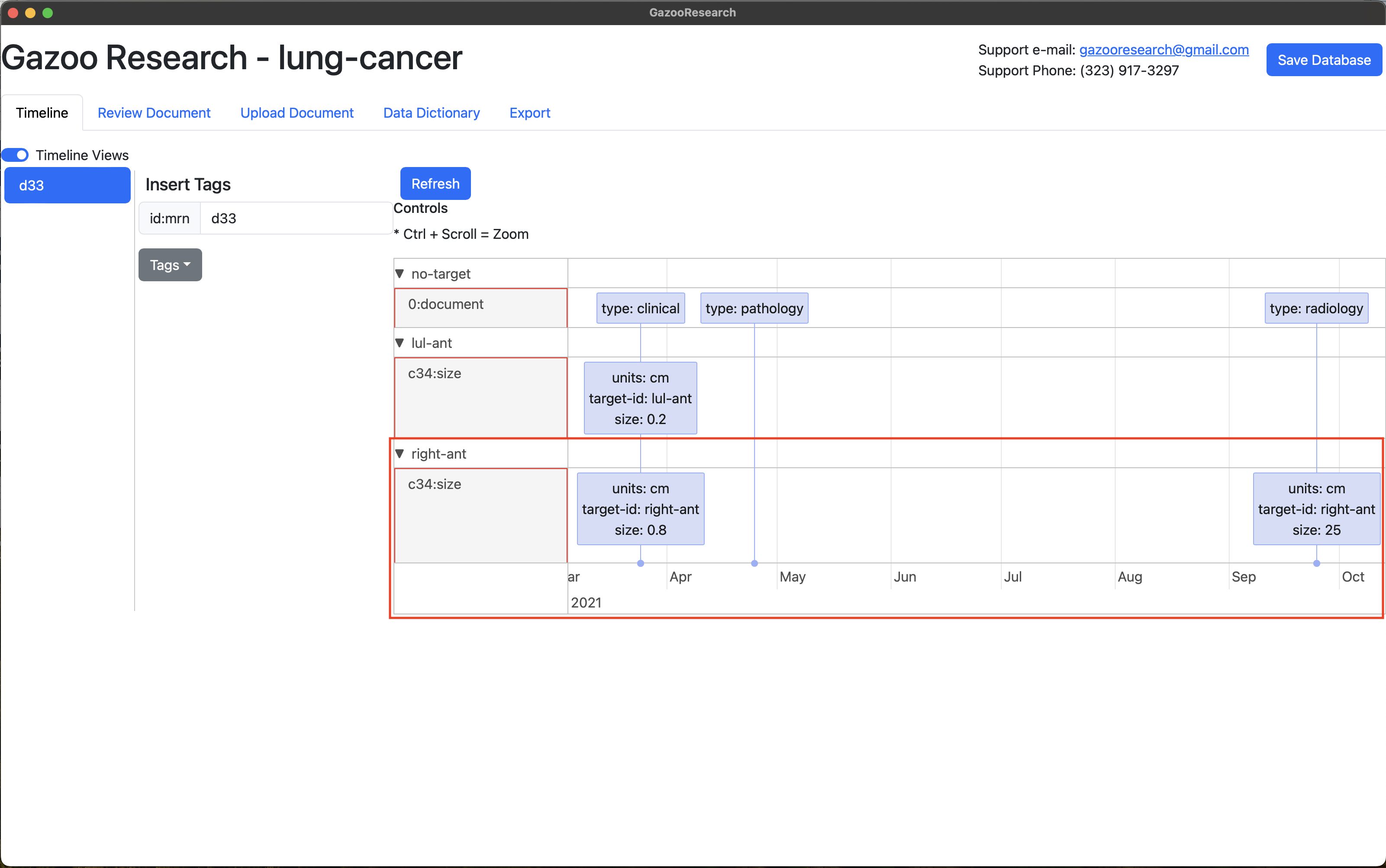Multi-Lesion Data
In some datasets there may be more than one incidence of the cancer, and the researcher may want to analyze the data at the patient level, as well as the lesion level. GazooResearcher supports this type of data aggrigation and analysis.
Examples:
- Skin Cancer: One patient can have multiple independent skin cancers.
- Lung metastasis: One patient can have multiple lung metastasis, each being treated differently (ie. SBRT, Wedge, RFA, Cryotherapy…).
- Prostate Cancer: One prostate may have multiple independent prostate cancer foci, each with different gleason scores.
Example: Multi-Target
In this example we are monitoring lung metastasis size through time. One patient can have multiple lung metastasis.
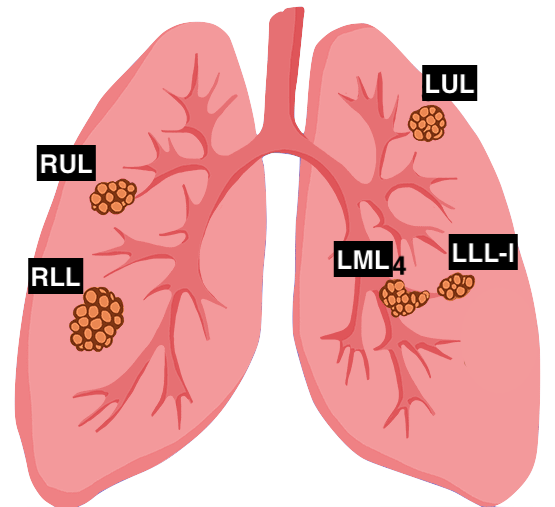
Data Dictionary
We’ll create a data dictionary using the icd10 code: “c34 - Malignant neoplasm of the bronchus and lung”. The tag will be named “size” indicating the size of the lung nodules. The tag’s fields include 1) Date 2) Size 3) Units, 4) target-id.
Click the “Add Target-Id” button to create a special field named: “target-id”, and add the description
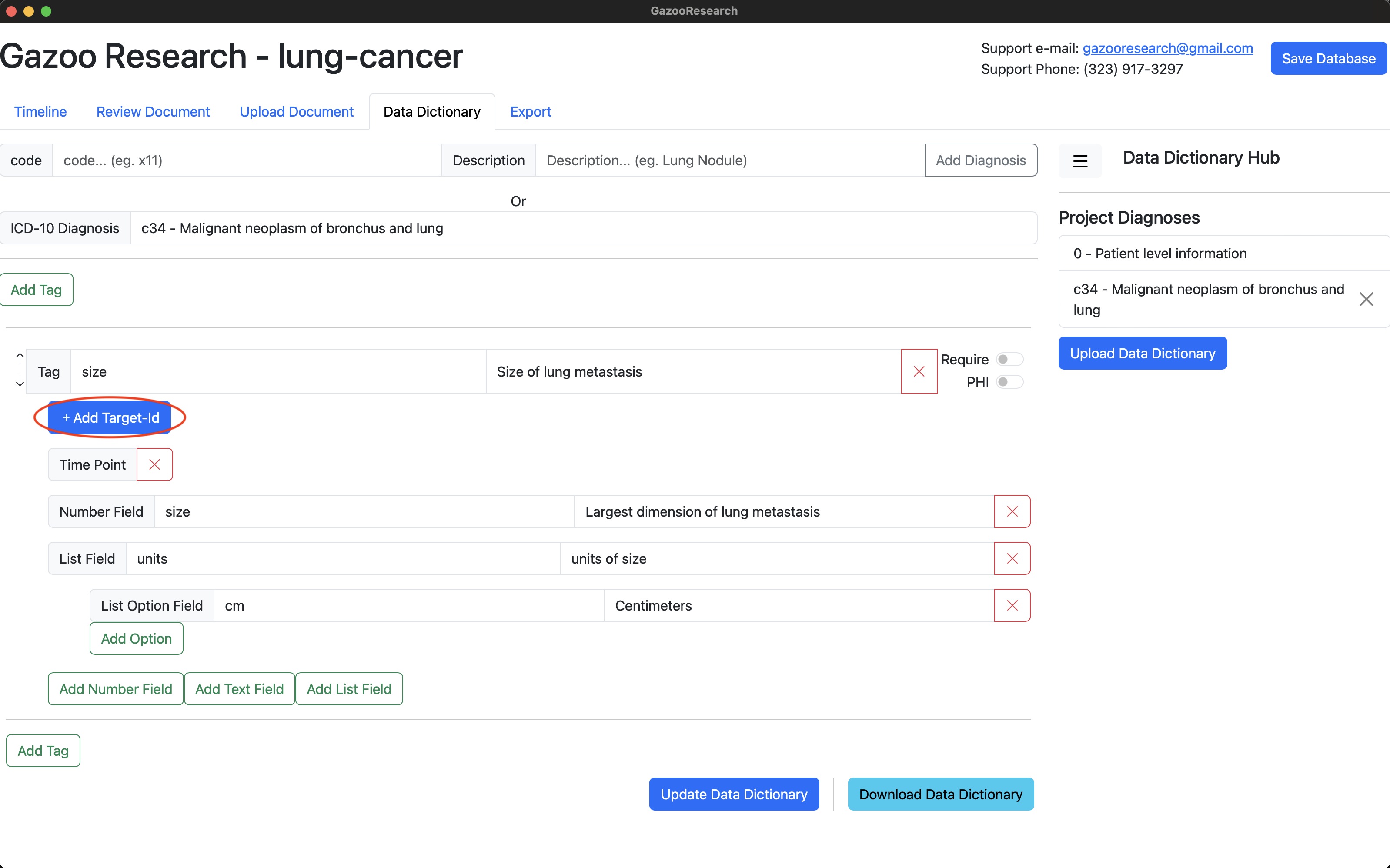
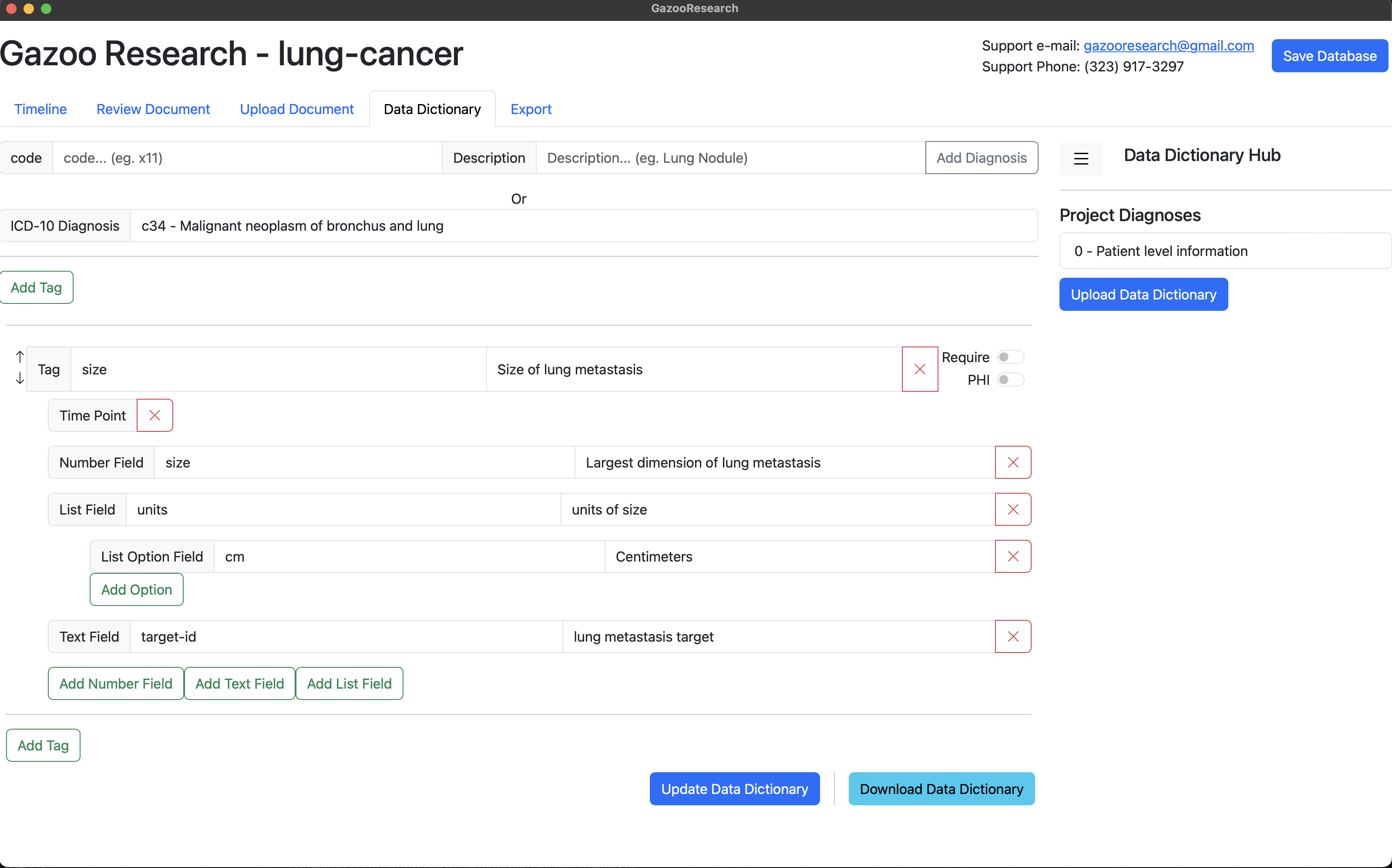
Annotate Data
In the background we have uploaded 3 very basic CT scan reports, and annotated basic information like patient id (ie. mrn), and document.
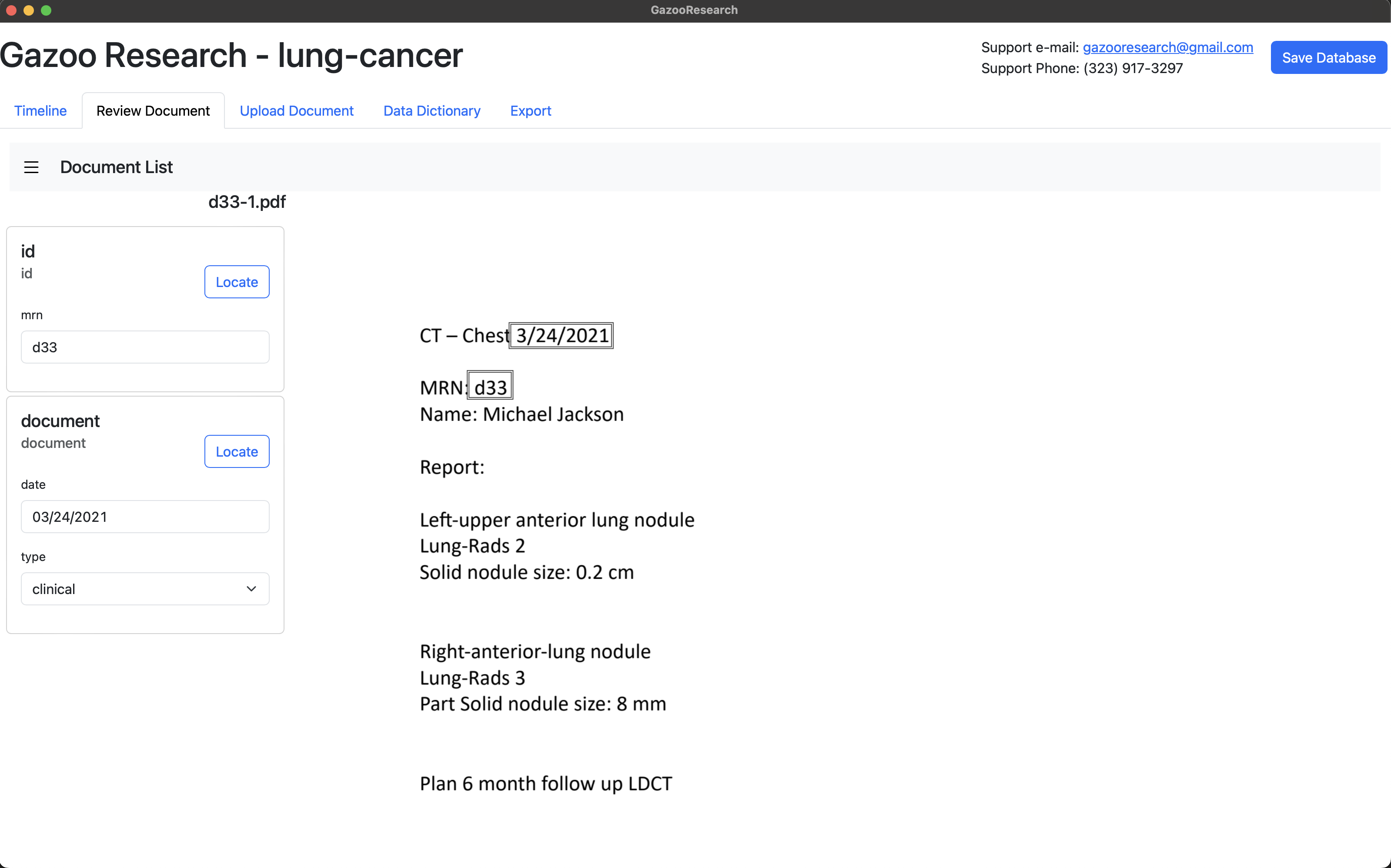
Start annotating the size tag in the documents.
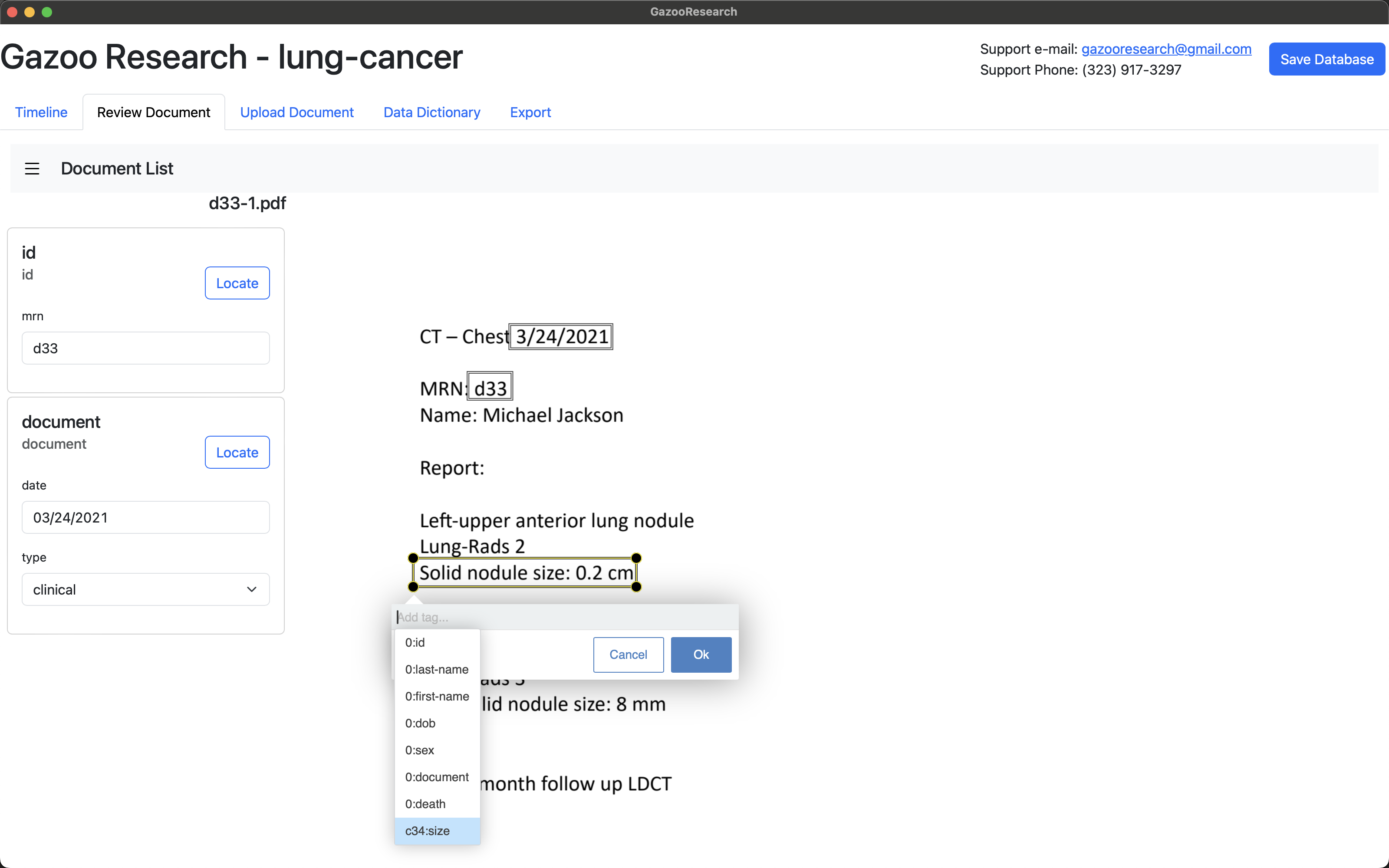 Under the “target-id” field, create a unique name for that target. We’ll use “lul-ant”, which stands for “Left Upper Lobe - Anterior Segment”.
Under the “target-id” field, create a unique name for that target. We’ll use “lul-ant”, which stands for “Left Upper Lobe - Anterior Segment”.
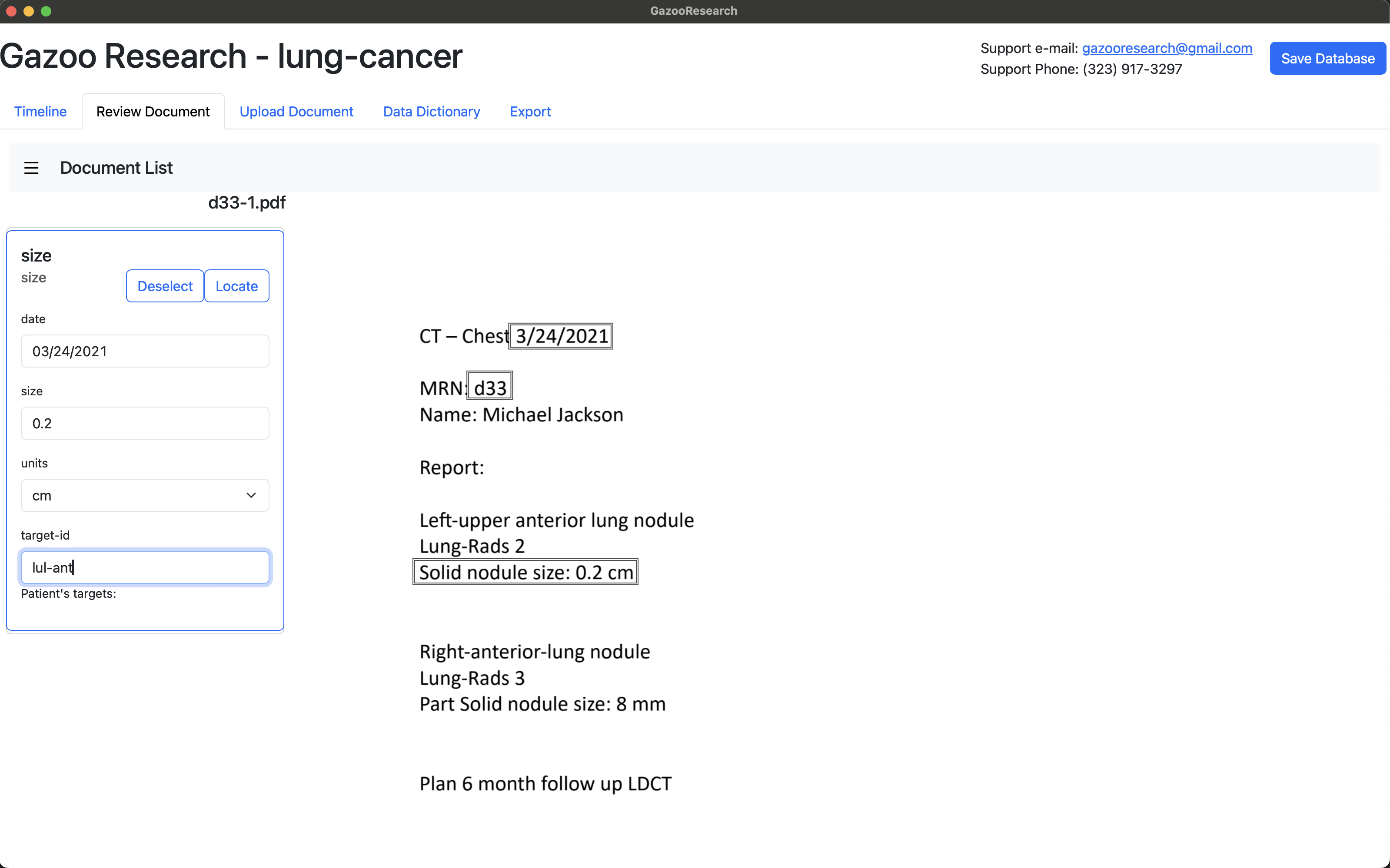 When we annotate the other lung lesion, we’ll use a different “target-id” name: “rul-ant”.
When we annotate the other lung lesion, we’ll use a different “target-id” name: “rul-ant”.
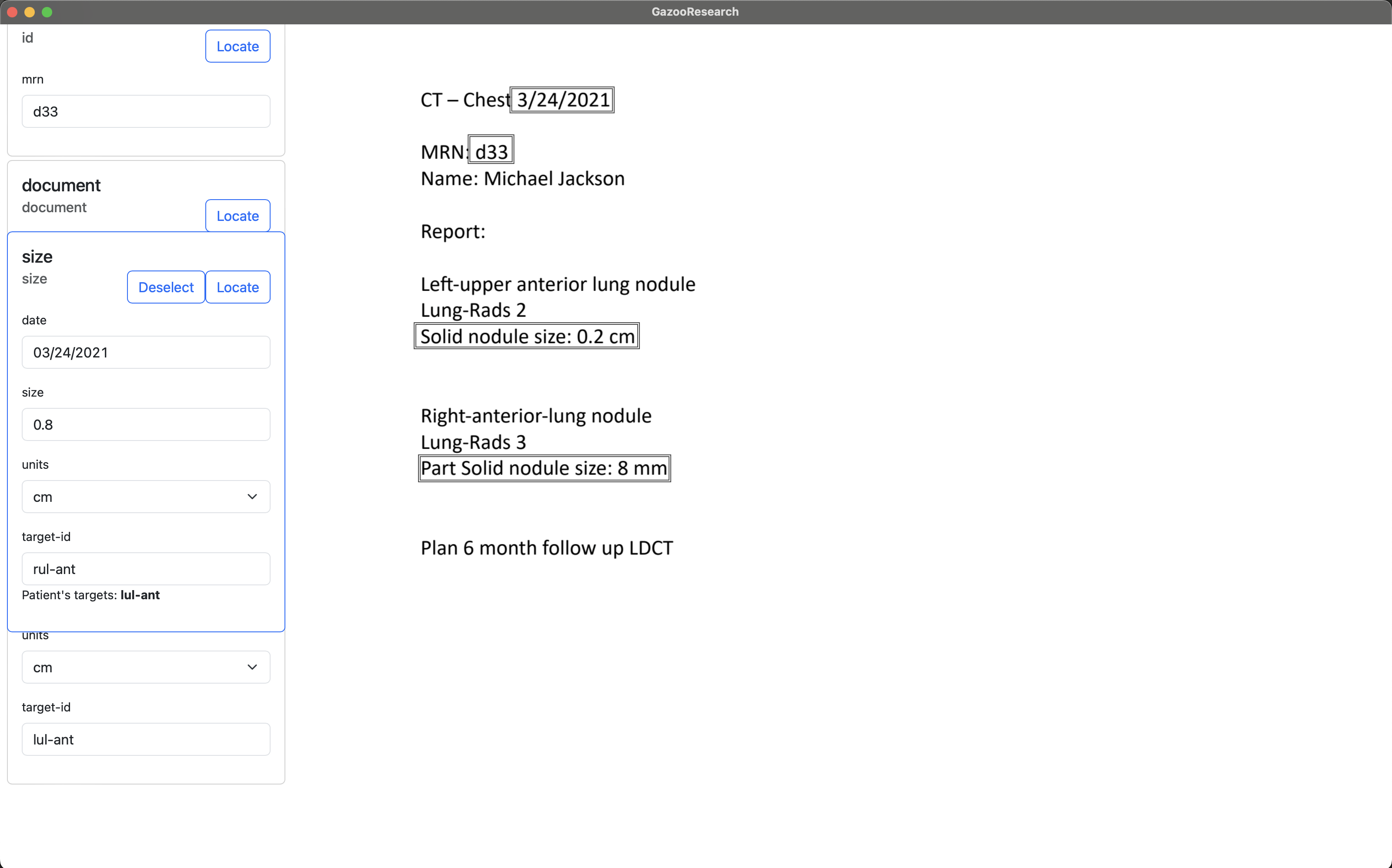 When we navigate to another document, and annotate the tag “size”, we can see that the tag box tells us what target-ids this patient already had. We will enter “rul-ant”.
When we navigate to another document, and annotate the tag “size”, we can see that the tag box tells us what target-ids this patient already had. We will enter “rul-ant”.
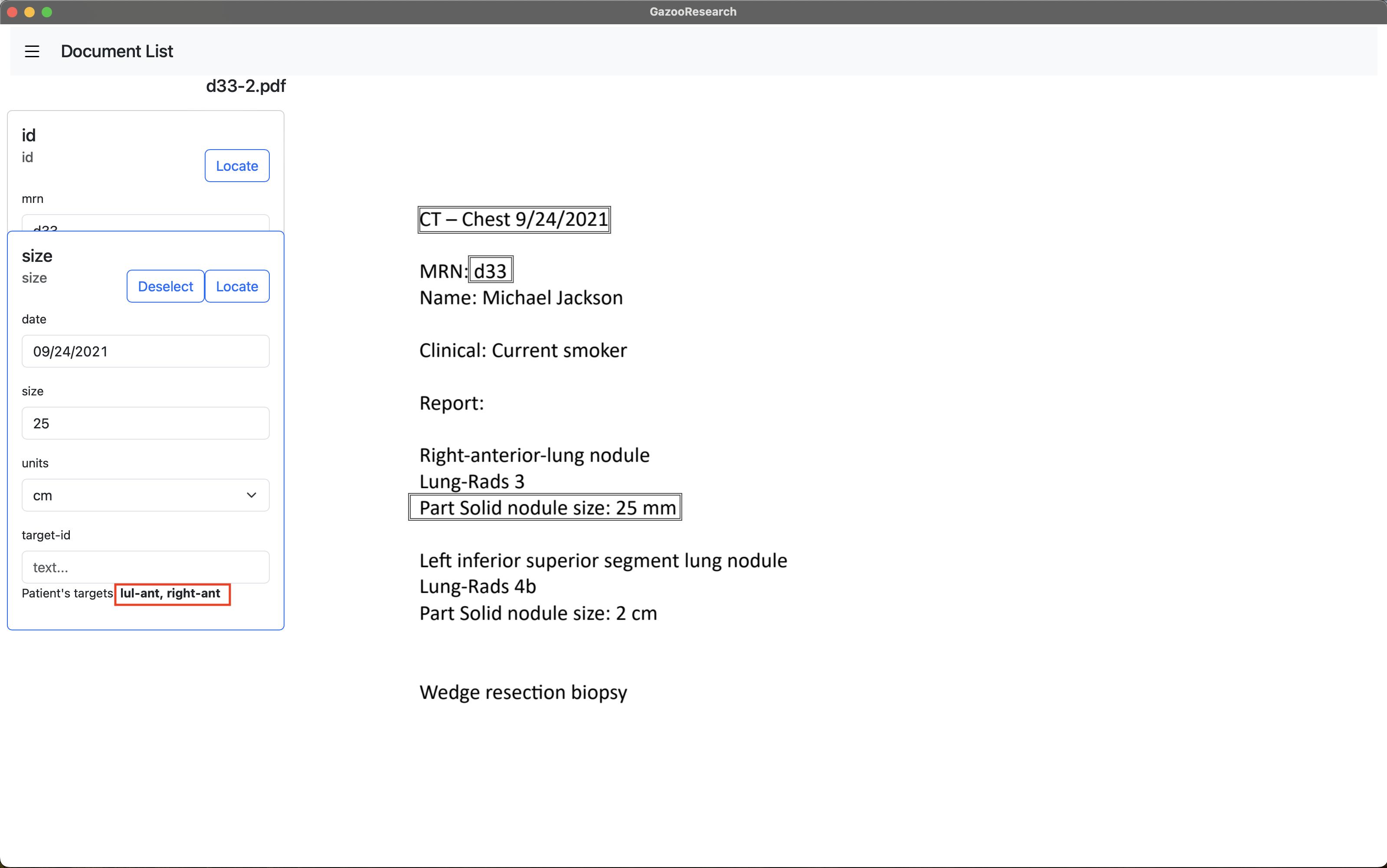 When you navigate to the Timeline’s Tab. GazooResearch aggrigated target-ids together. You can see that this one lung metastasis grew over the 6 months.
When you navigate to the Timeline’s Tab. GazooResearch aggrigated target-ids together. You can see that this one lung metastasis grew over the 6 months.
